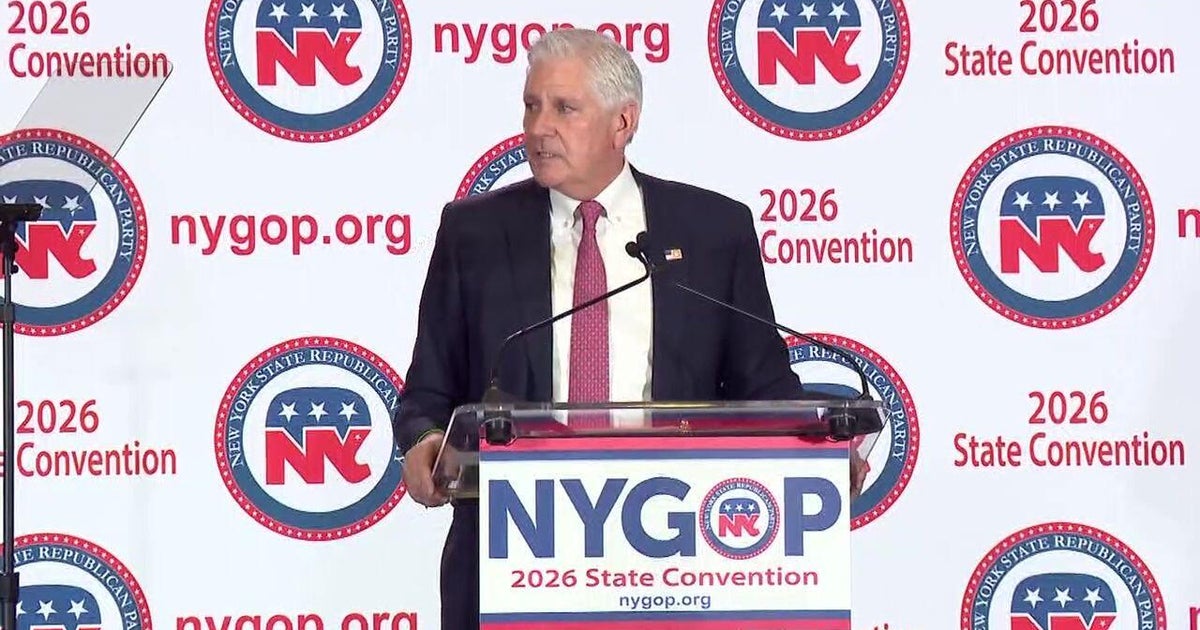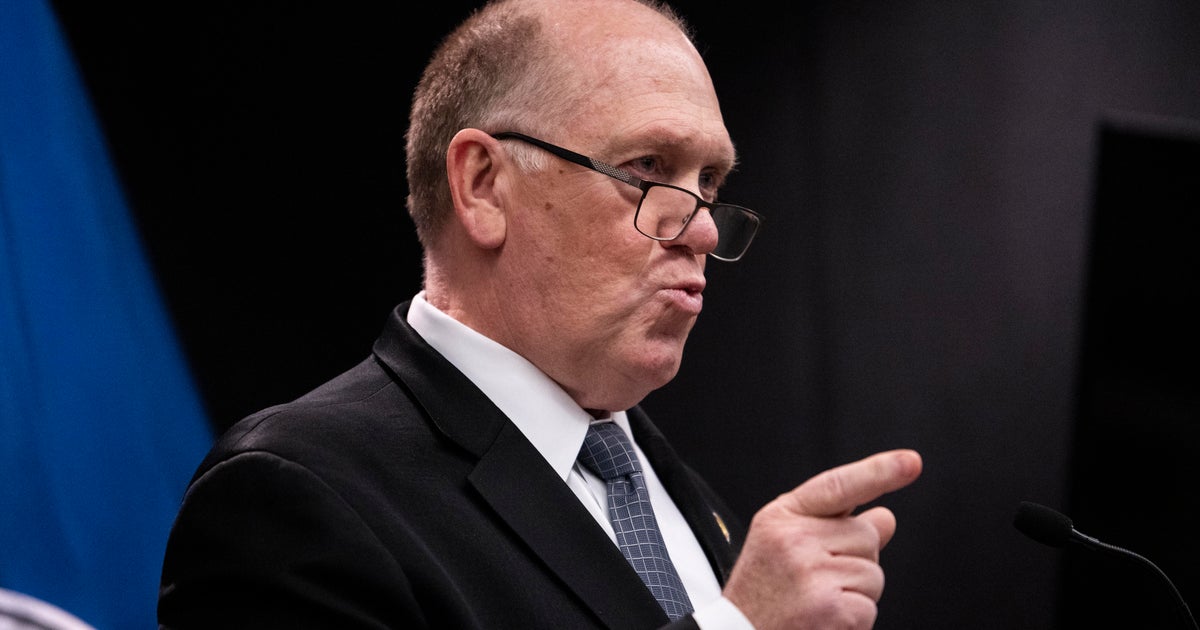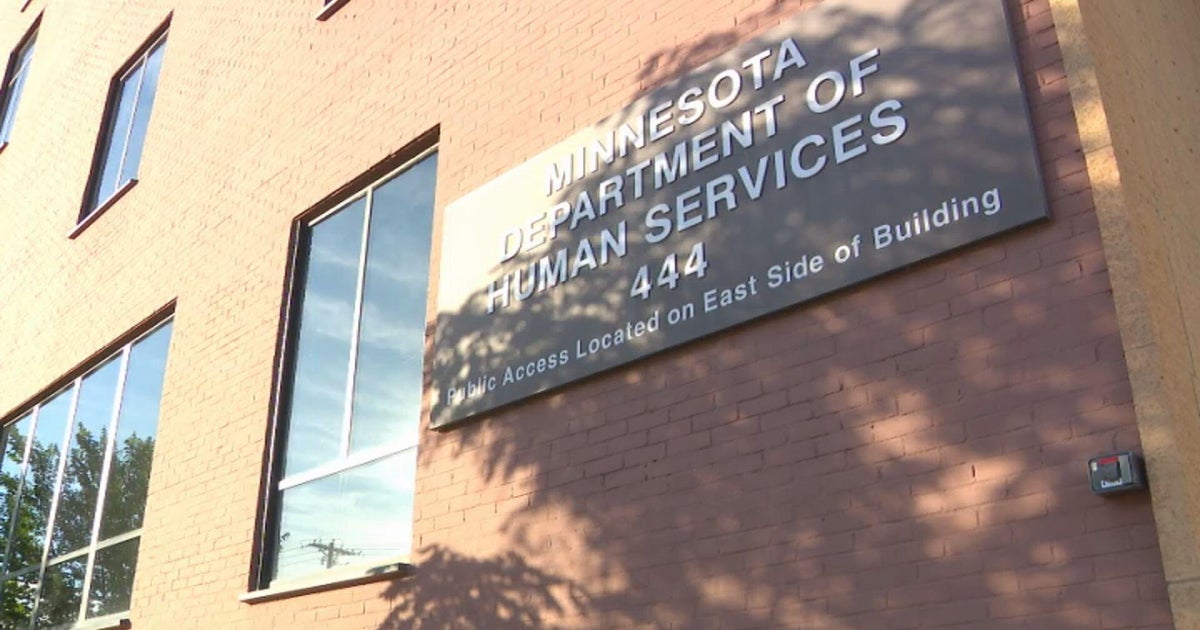FACT CHECK: Social Security Prompts Debate Miscues
WASHINGTON (AP) -- Rick Perry 1.0 thought Social Security was a "disease" inflicted on the population by the federal government.
Rick Perry 2.0 thinks Social Security deserves to be saved "for generations to come."
That metamorphosis by the Republican presidential hopeful over recent months contributed to some factual stretches Monday night in a GOP debate, both by the Texas governor and his opponents for the nomination.
A look at some of the claims in the debate and how they compare with the facts:
------
PERRY: On Social Security for younger workers, "No one's had the courage to stand up and say, here is how we're going to reform it."
THE FACTS: Many have done just that. Former President George W. Bush and a variety of Republicans since, including some running for president now, have stood for the position that Social Security should be partially privatized, enabling younger workers to divert some of their payroll taxes to individual investment accounts while the entitlement program is kept whole for those already using it or close to retirement.
------
MITT ROMNEY: "The real issue is, in writing his book, Gov. Perry pointed out that in his view that Social Security is unconstitutional, that this is not something the federal government ought to be involved in, that instead it should be given back to the states."
THE FACTS: Perry indeed roundly criticized Social Security in his book, but not quite to the point of calling it unconstitutional. In words he is trying to walk back now, Perry branded the program the "best example" of the "fraud" and "bad disease" spread by Washington in Franklin Roosevelt's New Deal. Perry furthermore criticized the Supreme Court of that era for "abdicating its role as the protector of constitutional federalism."
That falls somewhere short of declaring Social Security unconstitutional.
Perry now has abandoned such rhetoric, adopting the conventional Republican view in a USA Today column Monday that its finances must be made whole to protect current and imminent retirees and make it viable for "generations to come."
------
MICHELE BACHMANN: Obama "stole over $500 billion out of Medicare to switch it over to Obamacare. ... These are programs that need to be saved to serve people, and in their current form, they can't."
ROMNEY: "He cut Medicare by $500 billion. This is a Democrat president. The liberal, so to speak, cut Medicare. Not Republicans, the Democrat."
THE FACTS: "Stole" is a hyperbolic way to describe the kinds of shifts in budget priorities that happen every day in Washington. To pay for expanded insurance coverage, Obama's health care law cuts $500 billion in payments to the Medicare Advantage program -- which a congressional agency said was being overpaid -- and to hospitals and nursing homes. Nearly all House Republicans, including Bachmann, later voted for a GOP budget plan that retained the same cuts Obama had made.
------
PERRY: The $814 billion economic stimulus program pushed by President Barack Obama "created zero jobs."
THE FACTS: There is no support for that assertion. The nonpartisan Congressional Budget Office said last year that the stimulus increased the number of people employed by between 1.4 million and 3.3 million as of mid-2010. It cut the unemployment rate between 0.7 and 1.8 percentage points, the CBO found.
Economists debate whether the stimulus lived up to its promise or was worth the cost, but no one seriously argues that it created no jobs. Many believe it helped to end the recession even while falling short of its employment goals.
------
BACHMANN: "I was one of the only people in Washington that said do not raise the debt ceiling. Don't give the president of the United States another $2.4 trillion blank check."
THE FACTS: Love or hate the debt deal, it was not a blank check for the president. Congress controls spending. The president can only suggest how the budget should be divvied up. Moreover, the "check" was not exactly blank. The deal that averted a national default requires automatic spending cuts to kick in if Congress does not accept cuts that will be proposed by a supercommittee.
------
RON PAUL: As a Texan, "my taxes have gone up. Our taxes have doubled since (Perry's) been in office. Our spending has gone up double. Our debt has gone up nearly tripled." Perry responded that he had cut taxes by $14 billion in 65 different pieces of legislation.
THE FACTS: Even though they seem to be contradicting each other, both have a point. Overall, the tax burden has grown, but shifted to some extent from state to local governments. Based on statewide tax collection figures, it is quite probable that Paul's total tax burden has doubled. But Perry did sign 65 pieces of legislation that reduced taxes. Taxes would be much higher in Texas if those laws had not gone into effect.
As for spending, it's reaching $86 billion in the next two years, up from $56 billion in Perry's first two years as governor. That's not quite double, as Paul claimed.
Texas' debt has tripled, primarily because of a Perry-backed move that allows the state to finance road construction with bonds instead of having to use cash.
(© Copyright 2011 The Associated Press. All Rights Reserved. This material may not be published, broadcast, rewritten or redistributed.)







